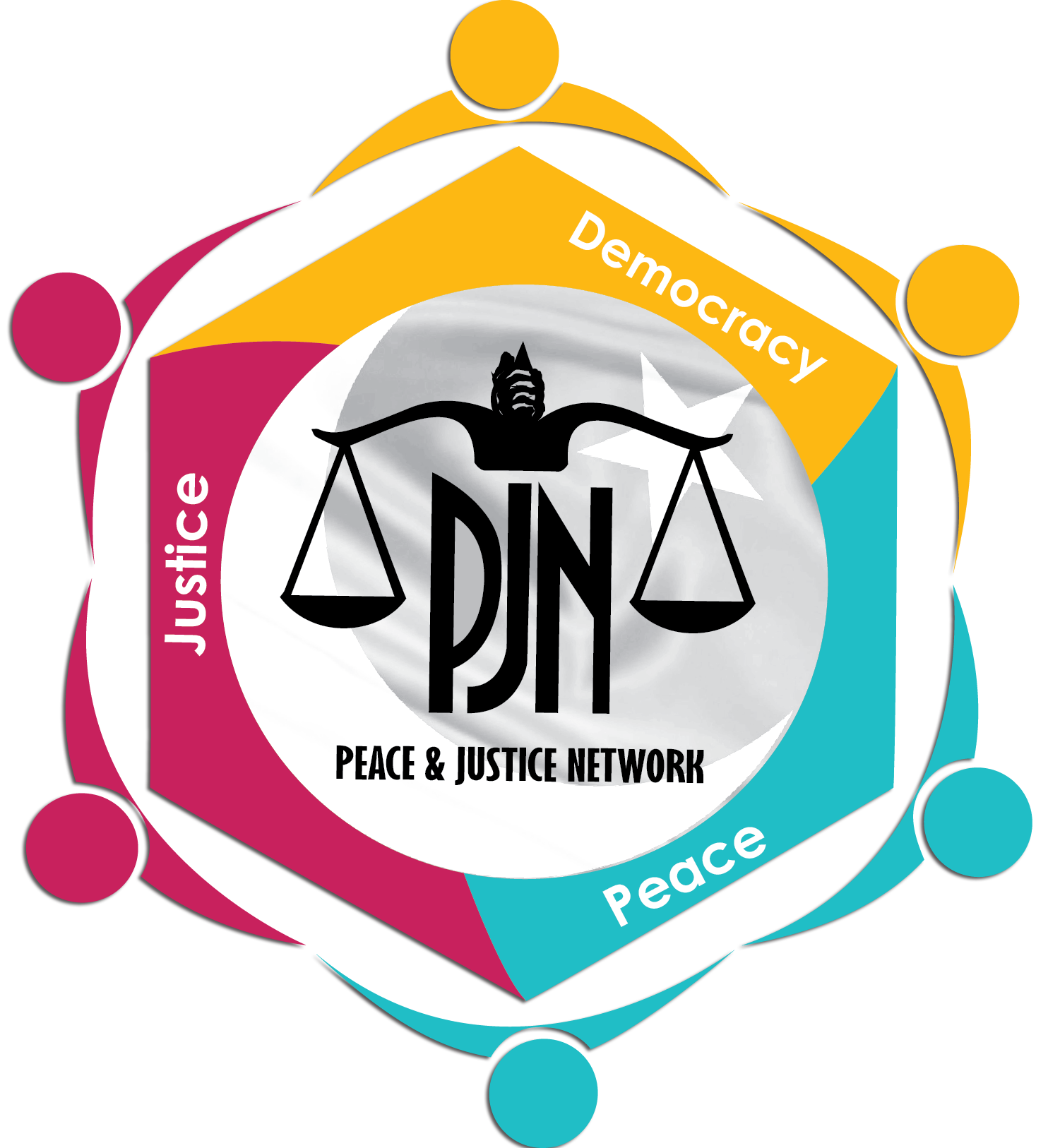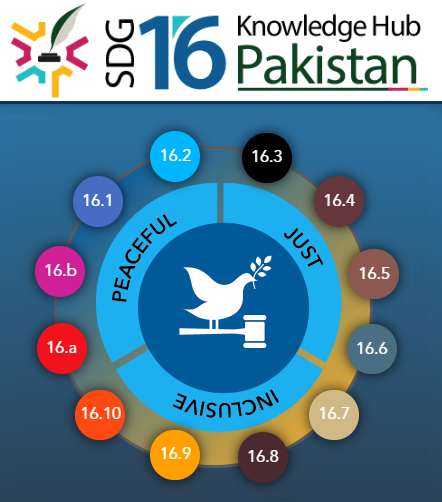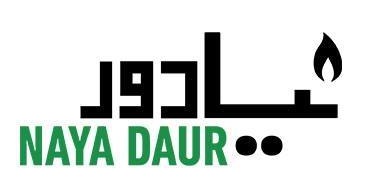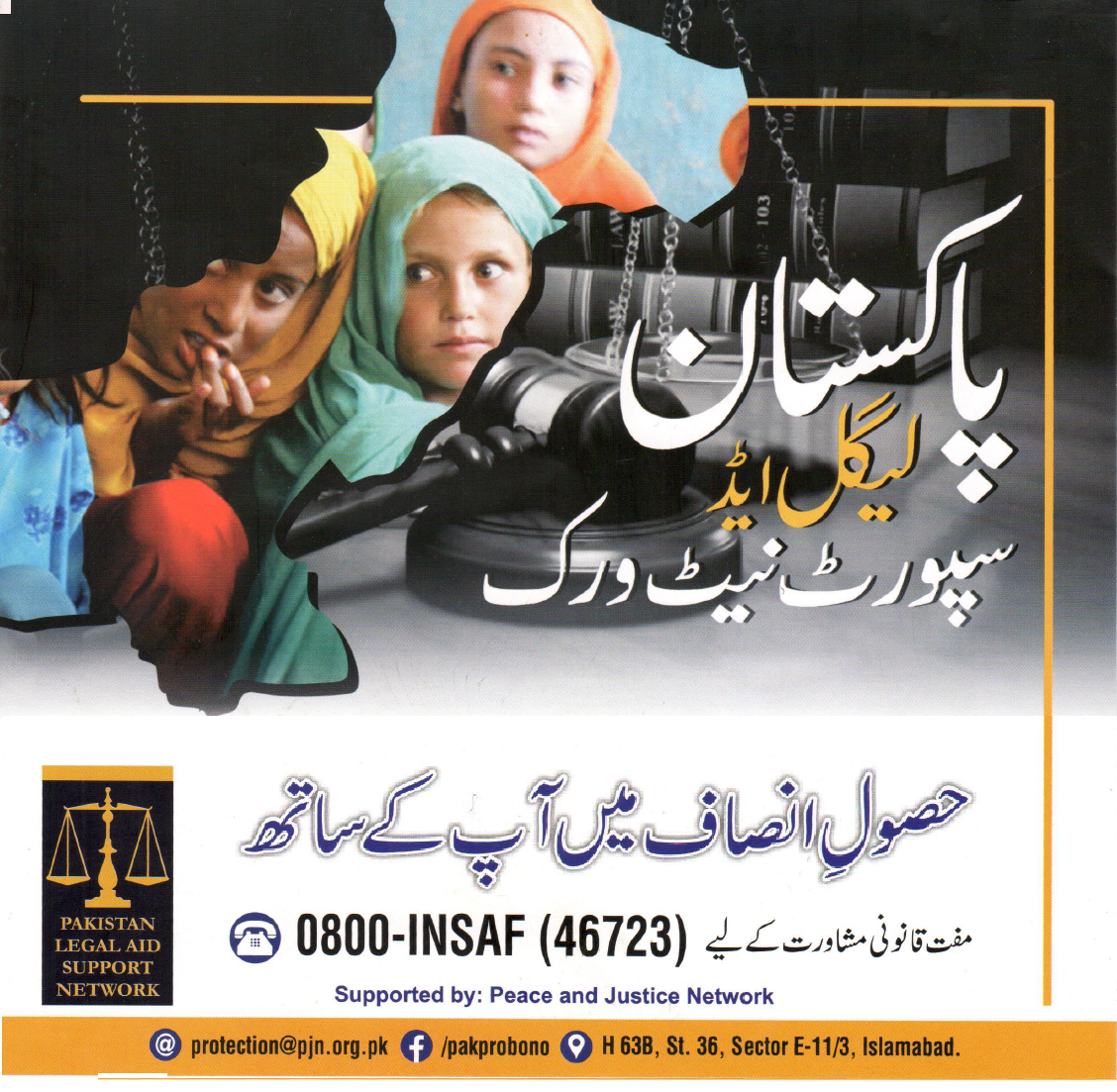

International Day for Judicial Well-being: A Global Call for Action (4 Mar, 2025)
Pakistan Ranks 129 out of 142 in the World Justice Project Rule of Law Index (26 Oct, 2024)
2024 Trafficking in Persons Report: Pakistan (24 June, 2024)
Pakistan ranks second-last in WEF Global Gender Gap Report 2024 (7 Mar, 2025)
PJN, UNDP hold divisional workshop on Strengthening Dispute Resolution Councils in Mardan Division

Sun, November 24, 2024
In an effort to strengthen the Dispute Resolution Councils (DRC) of Mardan Division, a consultative workshop was held today attended by DRC representatives from Mardan, Nowshera, Charsadda and Swabi at Police Lines Mardan organized by Peace & Justice Network (PJN) in collaboration with UNDP Pakistan and Khyber Pakhtunkhwa Police. This activity was held through the EU-funded “Deliver Justice Project” aimed at making justice more accessible and inclusive in Khyber Pakhtunkhwa and Balochistan.
The DRCs are an Alternative Dispute Resolution (ADR) forum established under the KP Police Act 2017 and provide alternative dispute resolution services at the police station, subdivision, and district level. A statutory forum, the DRC provides services to the masses at the grass root level enabling citizens to benefit from out of court services for dispute resolution.
During the opening session of the workshop on strengthening Dispute Resolution Councils (DRCs) in Mardan Division, the District Police Officer (DPO) of Mardan Zahboor Babar Afridi emphasized the importance of DRCs, highlighting their operational framework and the positive impact they have in resolving community disputes effectively. He appreciated the effort of UNDP Pakistan and Peace & Justice Network for organizing this important workshop. During the session, District & Session Judge Muhammad Zeb Khan also highlighted the critical role of ADR and DRCs in addressing count pendency and supporting speedy justice.
Ms. Caitlin Chittenden Rule of Law & Justice Reforms Specialist, Rule of Law Program UNDP Pakistan and Syed Raza Ali CEO Peace & Justice Network also highlighted that the strengthening of Dispute Resolution Councils (DRCs) in Khyber Pakhtunkhwa is crucial to enhancing their ability to serve communities effectively in resolving disputes. By addressing existing gaps—such as inadequate resources, limited training for members, lack of inclusivity, and insufficient public awareness—DRCs can become more efficient, accessible, and responsive to community needs. Strengthened DRCs not only provide timely and cost-effective justice but also play a vital role in reducing the burden on formal courts and fostering social harmony at the grassroots level.
The workshop brought together key stakeholders, including law enforcement officials, community leaders, members of the judiciary, civil society representatives, and members of DRCs from across the Mardan Division. Ms. Salma Zeb Legal Aid & ADR Officer Rule of Law Programme UNDP highlighted the importance of gender responsive DRC system in Khyber Pakhtunkhwa and making it more inclusive. SP Headquarters Rizwan Habib highlighted the importance of enhancing the effectiveness of Dispute Resolution Councils (DRCs) by addressing legislative and policy gaps to ensure their decisions are more binding and enforceable. He also emphasized the need for gender-sensitive training to make DRCs more inclusive and responsive to the needs of all community members.
DRC members presented their progress, challenges, how to overcome them and recommendations to strengthen the forums. The workshop also reviewed the ADR member selection criteria, code of conduct and ethics for the DRCs and the actual rules in the DRCs. The importance of raising public awareness about the functioning of Dispute Resolution Councils (DRCs) was also emphasized to ensure that more people are informed about their services and can access them effectively.
The workshop featured panel discussions led by legal and ADR experts who underscored the importance of community-based dispute resolution mechanisms in reducing case backlogs and fostering trust. Participants engaged in group discussions to identify challenges facing DRCs, such as resource constraints, capacity gaps, and awareness issues, and proposed practical solutions. Special emphasis was placed on equipping DRC members with skills in mediation, negotiation, and conflict resolution to address community disputes more effectively.
The workshop concluded with actionable recommendations, including conducting regular training for DRC members to enhance their skills and knowledge, increasing public awareness of the role and benefits of DRCs, establishing mechanisms to monitor the performance and transparency of DRC operations and encouraging greater inclusion of women and minority representatives in the DRC framework.
Copyright © 2026 pjn.org.pk








